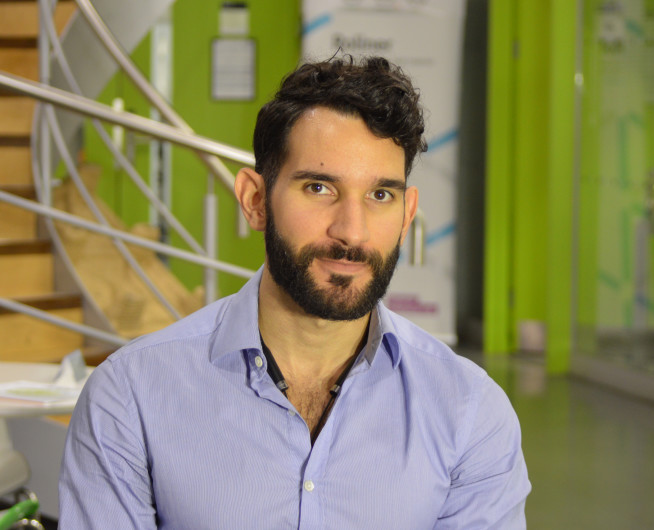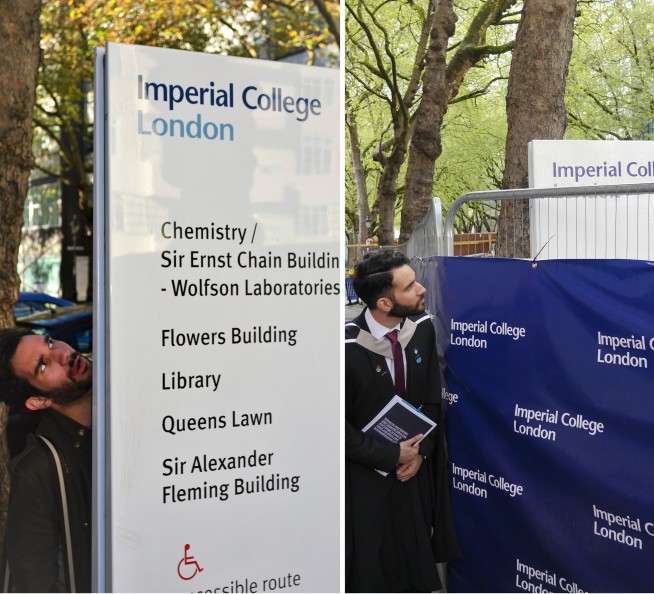
In 2018, Imperial graduate and current Bioengineering PhD candidate Ugur Tanriverdi (MRes Medical Device Design and Entrepreneurship 2017) co-founded Unhindr, an early-stage adaptive robotics company developing wearable devices for both medical and non-medical applications. Combining AI with robotics and microfluidics in a unique and award-winning way, Unhindr addresses the issue of inflexible prostheses.
In 2020, the company won the Mayor's Entrepreneur Health award and was named one of the 15 most innovative start-ups in Europe by the European Institute of Innovation and Technology of the European Union in partnership with GE Healthcare, Cap Digital and Imperial College London.
We caught up with Ugur ahead of our panel discussion on the future of innovation in Turkey in February 2021 (watch the recording here) to hear about his memories of Imperial and find out more about Unhindr. Follow the company's journey on Twitter and connect with Ugur on LinkedIn.
What is your fondest memory of your time here?
I visited Imperial College London as a tourist in 2012. I took a photo next to the Imperial sign. It was a dream for me. In 2017, when I graduated from Imperial with my second Masters and received my PhD offer, I went to that spot and took a photo with my graduation gown. Every morning, when I pass by the sign, I get a flashback of me standing there in 2012.

Who did you find inspiring at Imperial and why?
Alexander Fleming being an Imperial alumnus. When I pass by the Sir Alexander Fleming building, I just remind myself what a person can achieve and can change in the world.
Tell us a bit about the work you’re doing now.
I invented a wearable robotics technology for medical devices to improve skin comfort and prevent wound complications. Such complications occur in devices like prosthetic limbs, wheelchairs – the devices with long-term skin contact. The technology, Roliner, is a robotic lining technology that can monitor skin contact and provide a dynamic fit to ensure comfort. Roliner is being implemented into prosthetics limbs as a starting point.
Could you share your thoughts on the future of innovation in Turkey?
People in Turkey are dynamic, pragmatic and solution-focused, which are the foundations of innovation. The more role models they see, the more they will unlock their potential.
How has what you learnt at Imperial helped you in your career so far?
I improved my business skills in addition to my scientific training here. The entrepreneurial and scientific training allowed me to commercialise my PhD research to touch the lives of millions of amputees: I launched my company, Unhindr, which raised £1.4 million for R&D, and received recognition from institutions like the European Institute of Innovation and Technology, Mayor of London, and UKRI. I had some goals I wanted to achieve before the age of 30, and Imperial helped me to achieve them faster.
What have been your career highlights and lowlights?
This year, I have been recognised as Mayor’s Entrepreneur by the Mayor of London, Sadiq Khan; I received many other prestigious academic and business recognitions in the last two years. However, I am not afraid to say I have been rejected more than I have been awarded. People think that successful people only succeed. No, successful people fail until they succeed. Success is about persistence.
What are your plans for the future?
Finishing my PhD with good publications and growing Unhindr to help people.
What would be your advice for prospective and current students?
Keep a diary. Ask yourself questions. Ask yourself about your purpose.
What makes you proud to be an Imperial alumnus?
Just being a member of the Imperial alumni community which aims for a better world makes me proud.
What one word or phrase would you use to describe Imperial alumni?
Geeks who also know how to enjoy life.
Ugur on the importance of not giving up...
"People think that successful people only succeed. No - successful people fail until they succeed. Success is about persistence."